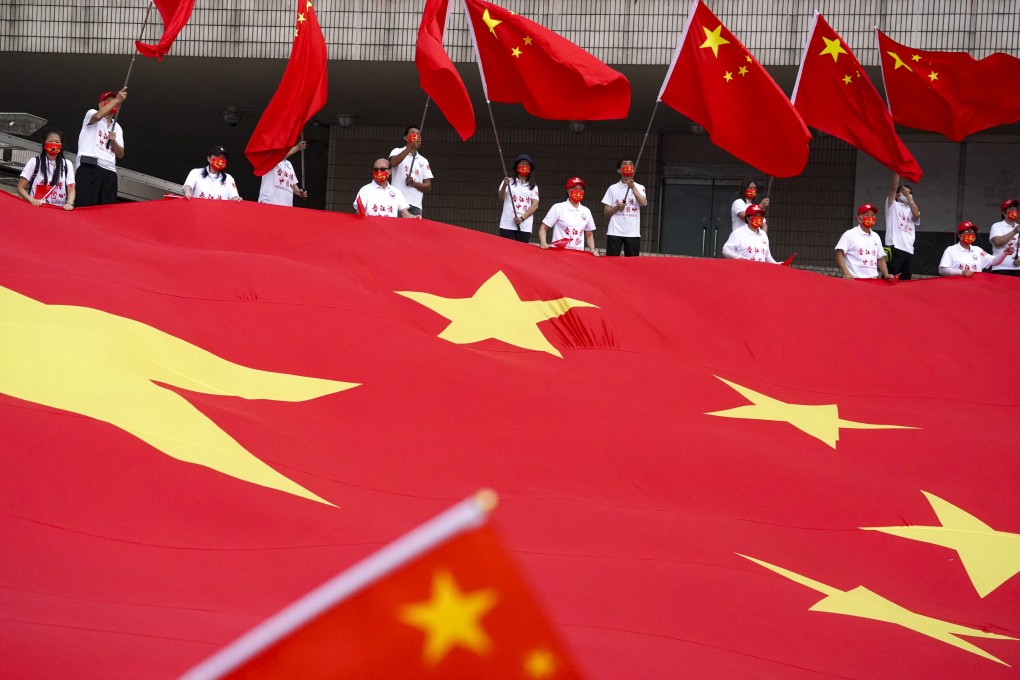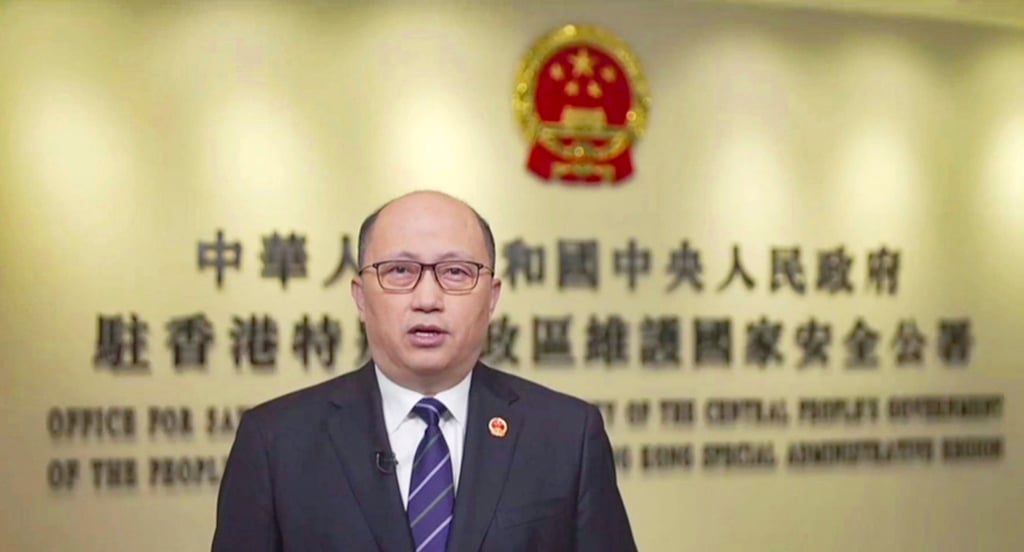National security law: Hong Kong must uphold mainland China’s socialist system, stamp out delusions of change from ‘street politics’, state official warns
- Zheng Yanxiong, director of the Office for Safeguarding National Security, spelled out the bottom line for Hong Kong at a legal forum on Saturday
- He also suggests more education needed to consolidate sense of national security locally

Hong Kong has a responsibility to guard the safety of mainland China’s socialist system, the head of Beijing’s national security office in the city has said, warning that those who believe local “street politics” can bring change across the border are “playing with fire”.
Zheng Yanxiong, director of the Office for Safeguarding National Security, spelled out the bottom line for Hong Kong at a legal forum attended by senior local officials on Saturday, warning the city still faced risks and hidden dangers despite Beijing’s implementation of the security legislation in 2020.
Beijing officials and heavyweights also suggested there was an urgency to enact a local version of the national security law, as required under Article 23 of the city’s mini-constitution, while Chief Executive Carrie Lam Cheng Yuet-ngor said Hong Kong’s governing team should enhance political awareness and be fearless of struggle.

In his keynote speech to senior Hong Kong officials, Zheng warned that freedom and autonomy in the city were not unlimited but within boundaries set by the central government.
“Autonomy is not freewheeling. The prerequisite of [Hong Kong’s] autonomy is first to ensure national sovereignty, security and development interests. After all, a high degree of autonomy comes from a high degree of self-consciousness and reassurance for the central government,” Zheng said via video conferencing.
He added it was equally important for Hong Kong to safeguard “one country, two systems”, referring to Beijing’s governing principle for the city.
“It is both our duty to maintain the security of the capitalist system in Hong Kong and the security of the socialist system on the mainland.